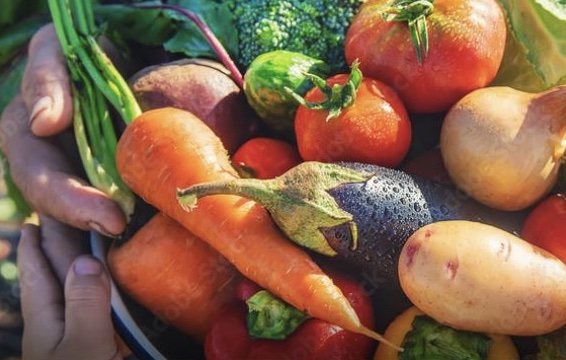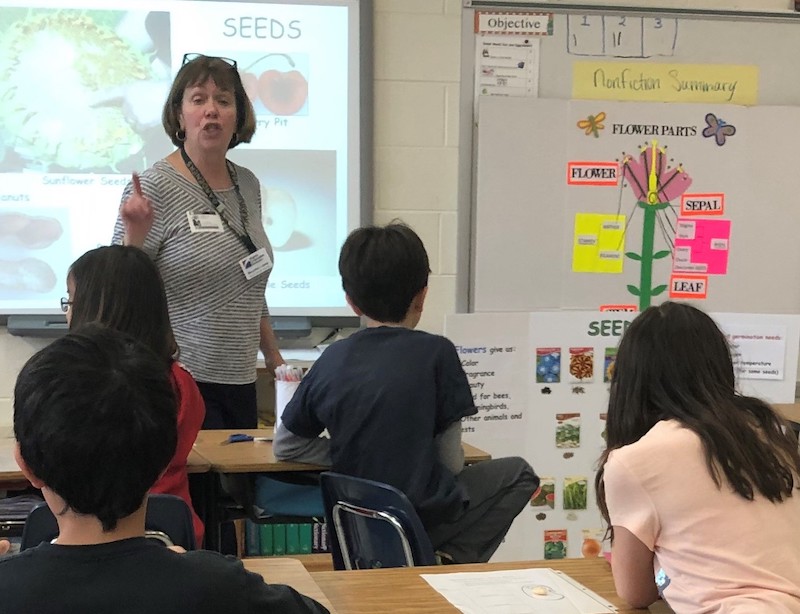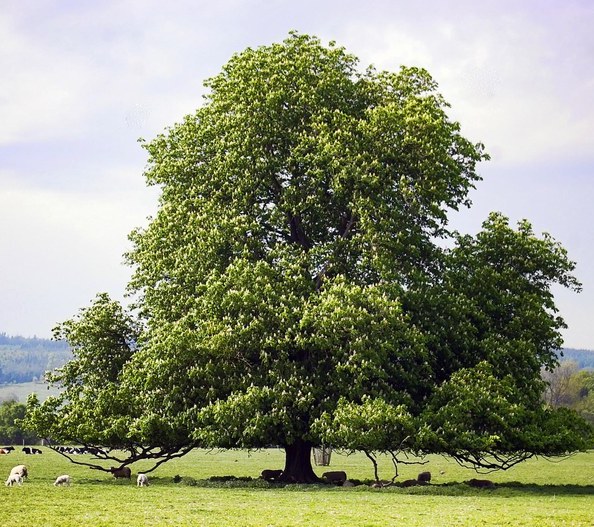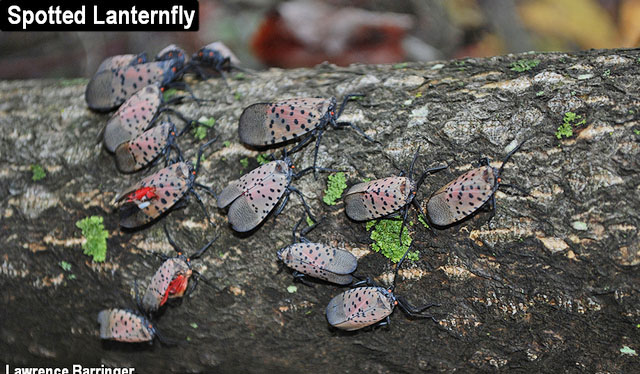Community Garden Plant Clinics Begin in April
by Mark Kieffer, Fairfax Master Gardener
 With cool season planting underway and warmer weather approaching, weekly plant clinics resume at community gardens throughout the county. Beginning Saturday, April 13, and monthly through September, Fairfax County Master Gardeners will set up information tables at the gardens where renters of garden plots, as well as the general public, can discuss garden issues and receive information and advice. While the plant clinics focus on growing vegetables and fruits, the Master Gardeners are also well prepared for questions about other gardening issues both from plot gardeners and others who live nearby or stop by while visiting the park.
With cool season planting underway and warmer weather approaching, weekly plant clinics resume at community gardens throughout the county. Beginning Saturday, April 13, and monthly through September, Fairfax County Master Gardeners will set up information tables at the gardens where renters of garden plots, as well as the general public, can discuss garden issues and receive information and advice. While the plant clinics focus on growing vegetables and fruits, the Master Gardeners are also well prepared for questions about other gardening issues both from plot gardeners and others who live nearby or stop by while visiting the park.
Advice is available for less experienced gardeners who may need help with the basics of vegetable gardening as well as seasoned gardeners who encounter unexpected problems or seek new approaches based on the latest scientific information. Because the gardeners come from diverse backgrounds, Master Gardeners staffing the clinics are also learning about different crops and growing techniques not usually seen in the area. Copies of extension service publications are available on topics such as vegetable planting schedules, Integrated Pest Management and container and raised bed gardening. Soil test kits are also available in response to growing recognition of the importance of soil chemistry in successful gardening.
The community garden plant clinics began six years ago as a cooperative effort involving the FCPA, VCE and the FCMGA. Senior Master Gardener and long-time Bo White gardener Carmine Carosella helped lead the initiative and has managed FCMGA’s participation since.
FCMGA also holds weekly plant clinics from May through September at farmers markets and libraries throughout the county.
Clinic locations and schedules
Garden plot rental program
Let’s Grow: New Name and an Updated Science Focus
by Christina Tyler Wenks, Fairfax Master Gardener
 Masters Gardeners are evolving with community needs and updating a popular enrichment program that has served many thousands of students. For more than 20 years, Fairfax County Masters Gardeners took the Ready Set Grow! program into public school classrooms, sharing hands-on lessons about botany, plant reproduction and the importance of pollinators to more than 20,000 students. In spring 2024, the program is getting a new name and will reflect the current science curriculum and gardening trends.
Masters Gardeners are evolving with community needs and updating a popular enrichment program that has served many thousands of students. For more than 20 years, Fairfax County Masters Gardeners took the Ready Set Grow! program into public school classrooms, sharing hands-on lessons about botany, plant reproduction and the importance of pollinators to more than 20,000 students. In spring 2024, the program is getting a new name and will reflect the current science curriculum and gardening trends.
Let’s Grow will touch on botany basics and delve deeper into lessons about the value of native plants, the impact of invasive plants and how to identify them, their relationships on Virginia’s environment and biodiversity, and responsible controls. In spring, Fairfax County Public Schools will share a letter with fourth-grade teachers to apply for the Let’s Grow program. The number of Fairfax County Master Gardener volunteers will determine how many classrooms can be served.
“Later in the school year, we will break the curriculum into smaller components — or learning modules — and we will make those available to scout groups and camps throughout the year,” said Maryellen Leister, who is leading the program transition to Let’s Grow.
Extending Let’s Grow into summer months provides volunteers additional opportunities to share skills beyond classrooms into other engaging, hands-on educational environments, such as scouting events and summer camps.
Some events might contain a single topic, such as watershed protection that includes discussion about the need for grasses and vegetation along creek banks to grow undisturbed, to filter fertilizers and rain runoff before water enters the Potomac River or drinking water supplies. Some events could contain multiple learning modules combined to meet a community organization’s learning outcome.
Leister said that compartmentalizing lesson modules should make preparing for classroom and camp sessions easier as well as more accommodating for volunteer’s schedules. All certified Master Gardeners and interns are welcome to participate in training for the event preparation. The only requirement is a desire to work with children.
Chestnut Comeback
 State University of New York’s College of Environmental Science and Forestry is shepherding government approval for a blight resistant chestnut tree, Darling 58, which they are hoping should come through in one to two years. It is collecting names of folks within the tree’s native range (that’s us!) who would be interested in planting seedlings once approved, and has a goal of planting 10,000 trees to support restoring the species to its native range.
State University of New York’s College of Environmental Science and Forestry is shepherding government approval for a blight resistant chestnut tree, Darling 58, which they are hoping should come through in one to two years. It is collecting names of folks within the tree’s native range (that’s us!) who would be interested in planting seedlings once approved, and has a goal of planting 10,000 trees to support restoring the species to its native range.
If you are interested, it may be possible to get chestnut seedlings now (which are not blight tolerant and will eventually succumb to blight) and then plant the tolerant variety in a few years, allowing them to cross-pollinate. Details for distribution of the blight resistant American chestnut trees are still being worked out. At this point in the deliberations, the New York chapter of ACF members will be first in line to receive trees. After research institutions and abroretums receive them, they should be available to the general public.
Check out these links for more information:
• Membership to American Chestnut Foundation
• Chestnut Research Project
Be on the Lookout for the Spotted Lanternfly

Spotted lanternfly on tree branch
A potentially very serious pest, the Spotted Lanternfly was first sighted in Frederick County, Virginia in 2018. With the growing season approaching, we need to be on the lookout for their egg masses that survived the winter cold. They can live in temperatures below 0 F. Eggs hatch in late April and early May. Nymphs have four developmental stages, or instars, and adults will appear in July.
We have included a link below from Virginia Cooperative Extension with information about their appearance at each developmental stage, where to look for them, and what to do if you see them in your landscape. Check Tree of Heaven (Ailanthus altissima), their favored host tree, and grapevines (Vitus vinifera), in particular. Contact the Fairfax Office of VCE to report any sightings.
Spotted Lanternfly in Virginia, Virginia Cooperative Extension